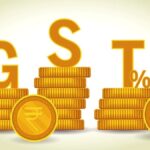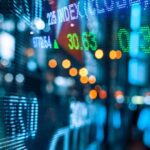
Image source: Getty Images
Last August, high-yield stock abrdn (LSE: ABDN) suffered the indignity of being dropped from the FTSE 100. This followed a fall in the company’s share price of around 40% in the year.
Crucial to its quick return (in December) to the leading index was its policy of ensuring excellent shareholder returns.
Despite its temporary exile, it maintained share buybacks and high dividends in 2022. It said it would pay a full-year dividend of 14.6p per share, the same as in 2021.
This gave a final yearly dividend yield of 7.7%. It also restated the ongoing annual dividend target of 14.6p.
The company has no desire to be ejected from the FTSE 100 again. To avoid any chance of this it needs to keep its share price up, and it knows that keeping dividends high is one way of supporting the stock.
For me, this is a great basis for considering buying a company. However, there are others too in abrdn’s case.
Cutting non-core operations
A key reasonwhy its stock price fell so dramatically in 2022 was an outflow of funds under management. From a peak of around £700bn in assets under management, it now manages and administers about £500bn.
This fed through into 2022 results that were already being adversely affected by difficult trading conditions.
The investment company made a pre-tax loss of £651m for 2022, having made a £1.1bn profit a year earlier. Its adjusted operating profit also fell, by 19% to £263m.
From this position, it cut some of its non-core businesses. Last year, it closed its Emerging Markets Local Currency Bond Fund. In February, it sold its discretionary fund management arm to Liechtenstein-based private bank LGT for £140m.
Strengthening its core business
Around the same time, it boosted its core business offering, buying interactive investor last March. The acquisition of the UK’s leading subscription-based direct investment platform bolsters its presence in the UK savings and wealth markets. Indeed, interactive investor’s net revenue increased 38% to £176m last year, with profits doubling to £94m.
In a similar vein, abrdn launched an investment platform with Virgin Money in early April. Customers will be able to invest through this in a Stocks and Shares ISA or a non-ISA investment account.
Broadening its sectoral presence further, abrdn announced on 21 June plans to acquire the healthcare funds of Tekla Capital Management. The deal includes four NYSE-listed healthcare and biotech thematic closed-end funds, totalling £2.6bn in assets under management.
US healthcare expenditure per capita has grown at a compound annual rate of 6% since the 1980s. And over the long term, healthcare has consistently outperformed broad debt and equity indices, according to investment industry data.
There are risks to the share price, of course. There could be further major market shocks this year that would test abrdn’s trading abilities again. There may also be setbacks in executing its new development strategy.
I already have holdings in this sector, but if I did not then I would buy abrdn shares today. One reason would be the high dividend payouts, which I expect to continue. I also think the shares can recoup their losses and rise further as its new business lines develop.








